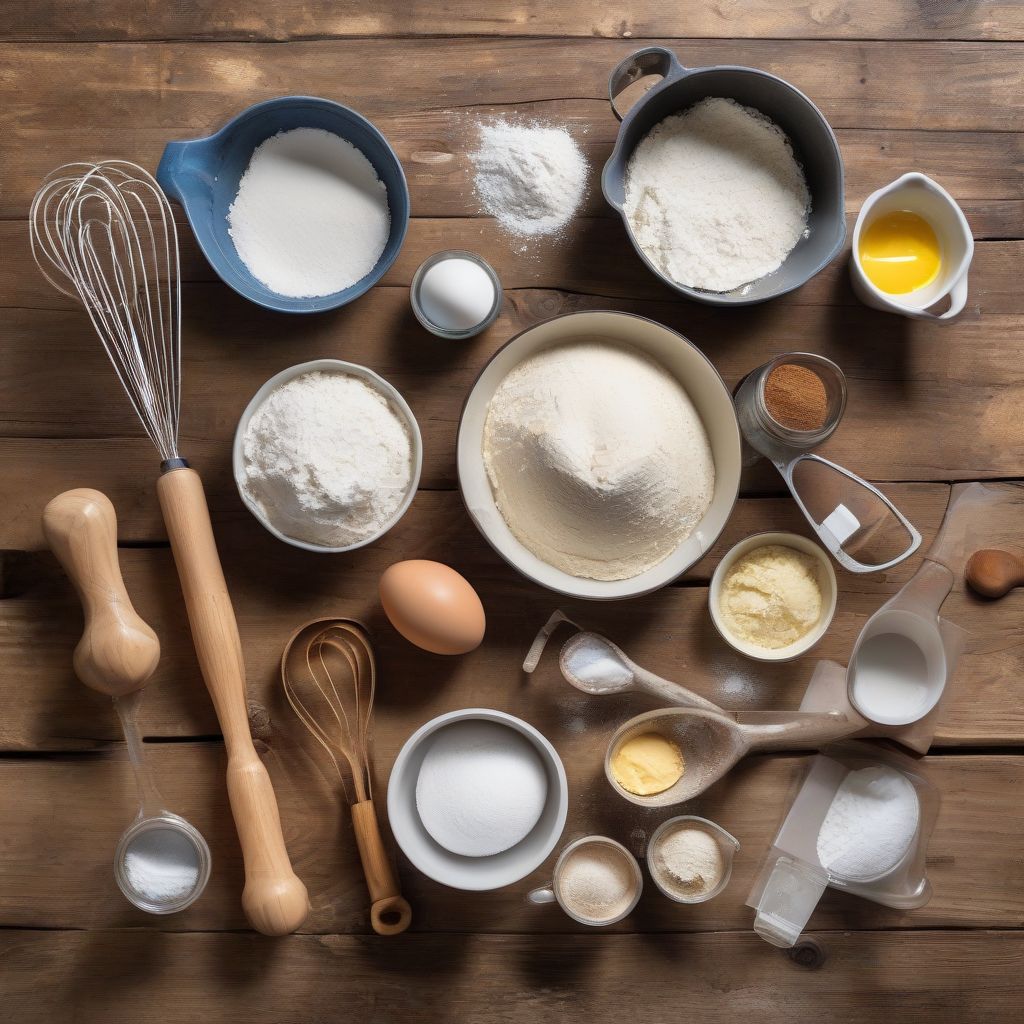Have you ever dreamt of pulling a perfectly golden, beautifully risen cake out of the oven, one that fills your kitchen with that irresistible, fresh-baked aroma? Or perhaps you envision flaky, buttery croissants that would make any Parisian pastry chef proud? We all have those baking aspirations, those moments when we envision ourselves as true masters of the craft. The good news is, with a few expert baking tips up your sleeve, achieving those picture-perfect results is well within your reach!
Baking is often perceived as an exact science, and while precision is essential, it’s also an art that allows for creativity and a touch of personal flair. But before you dive headfirst into elaborate recipes, mastering the fundamentals is key. Whether you’re a novice baker or have a few cakes under your belt, these expert tips will equip you with the knowledge and confidence to conquer any recipe and consistently deliver exceptional results. Let’s turn those baking dreams into a delicious reality!
Understanding the Science Behind Baking
Before we delve into the tips, let’s take a moment to appreciate the science behind baking. Understanding how ingredients interact is crucial for achieving the desired texture and flavor in your baked goods.
-
Gluten Development: Gluten, a protein found in wheat flour, is crucial for providing structure to your baked creations. When flour is mixed with liquid, gluten strands develop. The more you mix, the stronger the gluten network becomes. For chewy bread, you want strong gluten development, but for tender cakes, minimal gluten development is key.
-
Leavening Agents: These are the miracle workers that make our cakes rise and our bread light and airy. Baking powder and baking soda are common chemical leavening agents, while yeast is a biological leavening agent. Understanding how these agents work and using them correctly is essential for achieving the desired rise and texture.
-
The Role of Fats: Fats, such as butter, oil, and shortening, contribute to tenderness, moisture, and flavor. They interfere with gluten development, resulting in more tender baked goods.
-
Sugar’s Sweet Symphony: Sugar not only sweetens your treats but also plays a vital role in browning, spreading, and moisture retention.
By grasping these fundamental principles, you’ll be well-equipped to troubleshoot baking mishaps and understand the “why” behind each step in a recipe.
Expert Baking Tips to Elevate Your Skills
Here are some expert-approved tips to help you achieve baking perfection:
1. Precision is Paramount: Embrace Accurate Measurements
Baking is a precise art, and accurate measurements are non-negotiable. Using measuring cups and spoons designed for specific ingredients ensures consistency. For best results, invest in a kitchen scale and measure your ingredients by weight. This method is particularly crucial for ingredients like flour, where variations in how it’s scooped can significantly impact the outcome.
2. Temperature Matters: Room Temperature Ingredients are Key
Unless otherwise specified, most recipes call for room-temperature ingredients. This is especially true for ingredients like eggs and butter. Room-temperature ingredients blend more easily, resulting in a more homogeneous dough or batter, leading to better texture and volume in your finished product.
3. Read Before You Bake: Recipe Familiarization is Essential
Just like a roadmap guides you on a journey, a recipe is your baking guide. Before you embark on your baking adventure, take the time to read the recipe thoroughly. Familiarize yourself with the ingredients, equipment, and instructions. This will prevent any surprises along the way and ensure you’re well-prepared.
4. Quality Ingredients Shine Through: Invest in the Best
The quality of your ingredients can make or break your baking endeavors. Use fresh, high-quality ingredients whenever possible. Splurging on good-quality chocolate, real vanilla extract, or fresh fruits can significantly elevate the flavor of your baked goods.
5. Don’t Fear the Oven Thermometer: Ensure Accurate Oven Temperature
Ovens can vary in temperature, and an inaccurate oven can lead to uneven baking or baking disasters. Invest in an oven thermometer to ensure your oven is properly calibrated. This simple tool can save you from the heartbreak of underbaked or overbaked treats.
6. Mastering Baking Times: Avoid the Temptation to Peek
We’ve all been there, anxiously peering through the oven door, hoping to catch a glimpse of our baking masterpiece. However, resist the urge to open the oven door too frequently, especially during the early stages of baking. Opening the door can cause temperature fluctuations, which can affect the rise and overall texture of your baked goods.
7. The Art of Cooling: Allow Proper Cooling Time
Once your baking timer goes off, patience is key. Allow your baked goods to cool properly before frosting, glazing, or slicing. Cooling allows the internal structure to set and prevents your treats from becoming soggy or falling apart.
8. Embrace the Learning Curve: Don’t Be Afraid to Experiment
Baking, like any skill, takes practice. Embrace the learning curve and don’t be discouraged by occasional mishaps. View each baking experience as an opportunity to learn and grow. Experiment with different flavors, try new techniques, and don’t be afraid to put your own spin on classic recipes.
 Essential Baking Tools
Essential Baking Tools
Troubleshooting Common Baking Problems
Even seasoned bakers encounter occasional hiccups. Here are some common baking problems and their solutions:
Problem: Cake is dense and heavy.
Possible Causes: Overmixing the batter, using too much liquid, or oven temperature too low.
Problem: Cookies are flat and spread too much.
Possible Causes: Too much butter, using granulated sugar instead of brown sugar, or oven temperature too low.
Problem: Bread didn’t rise properly.
Possible Causes: Yeast was old or inactive, dough was not kneaded enough, or the dough was not allowed to rise in a warm enough environment.
Resources for Baking Enthusiasts
Here are some valuable resources to further enhance your baking journey:
- Books: “The Joy of Baking” by Irma S. Rombauer, “Baking Illustrated” by Cook’s Illustrated, “The Perfect Cookie” by America’s Test Kitchen.
- Websites: King Arthur Baking, Sally’s Baking Addiction, The Kitchn.
Conclusion
Baking is a rewarding endeavor that allows you to create delicious treats from scratch. By understanding the fundamental principles, embracing precision, and following these expert tips, you’ll be well on your way to achieving baking perfection. Remember, every successful bake is a testament to your dedication, creativity, and love for the craft. So, preheat those ovens, gather your ingredients, and let the baking adventures begin!
If you found these expert baking tips helpful, share your thoughts in the comments below. Happy baking!
[amazon bestseller=”baking tools”]
